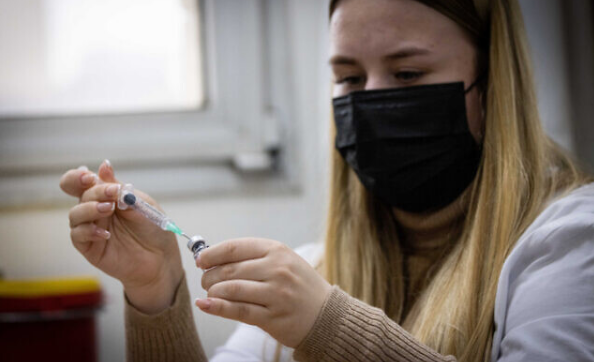Moms were just as emotionally available during COVID outbreak as in normal times, research finds, surprising psychologists
The pandemic didn’t harm emotional bonds between mother and baby, Israeli psychologists suggest in new research.
The psychologists studied interactions between 110 mothers and their babies just before the pandemic started, and then again several months later. Both times they used internationally recognized observation methods for assessing emotional availability in relationships.
“Our findings definitively bring a reassuring message,” Dr. Noa Gueron-Sela, who led the research at Ben Gurion University, told The Times of Israel. “We looked at mother-infant emotional availability, and didn’t find a negative impact from the pandemic.”
When the coronavirus reached Israel in early 2020, Gueron-Sela and her PhD student Gal Doron pivoted the mother-baby study they had just started, in order to address the impact of the pandemic. They feared that the upheaval in society and the stress and worry felt by many mothers could distract from and harm the bonding process.
All mothers in their study had been observed with their babies a few weeks previously, and were given tasks that allowed psychologists to explore their connection, such as one in which mothers saw the babies become frustrated.
A second session was planned — one that was COVID-safe, instructed and observed via Zoom and using a box of toys that was dropped on each mother’s doorstep. At the initial assessment the average age of babies was 3.5 months and by the second assessment it was 12.4 months.
“We expected to see a decline in emotional availability of mothers and reduced ability to respond to children’s cues,” said Gueron-Sela. “And on the part of children we expected to see reduced ability to initiate social interactions with mothers.”
They found no such result, however. The study, peer-reviewed and just published in the journal Infancy, concluded that “the COVID pandemic has not adversely impacted the continuity of maternal and child emotional availability as one may [have] expected.
“Despite physical and social distancing mandates, closure of childcare centers, and restrictions to families’ social activities and daily routines, Israeli infants showed developmentally appropriate increases in their social responsiveness and involvement with their caregivers across time,” it said.
Gueron-Sela elaborated: “Mothers were as emotionally available as in normal times, and were just as able to be sensitive, to structure social interactions, to be non-intrusive and to follow the child’s lead. And reassuringly, we saw infants’ ability to interact with their mothers increased over time, as we would have normally anticipated.”
She acknowledged that the study didn’t give a full picture of infants’ emotional development, especially as it looked only at bonding with mothers and not fathers. She also emphasized that the results are calculated as averages, and don’t rule out disruption to bonding in specific cases, which parents should address through professional channels.
But she said that the study seems to highlight how “sturdy” infants are generally proving during the pandemic. According to Gueron-Sela, “The pandemic had a very strong effect on everybody emotionally, but most mothers in our sample didn’t have a spillover of these emotions to their infants.”








